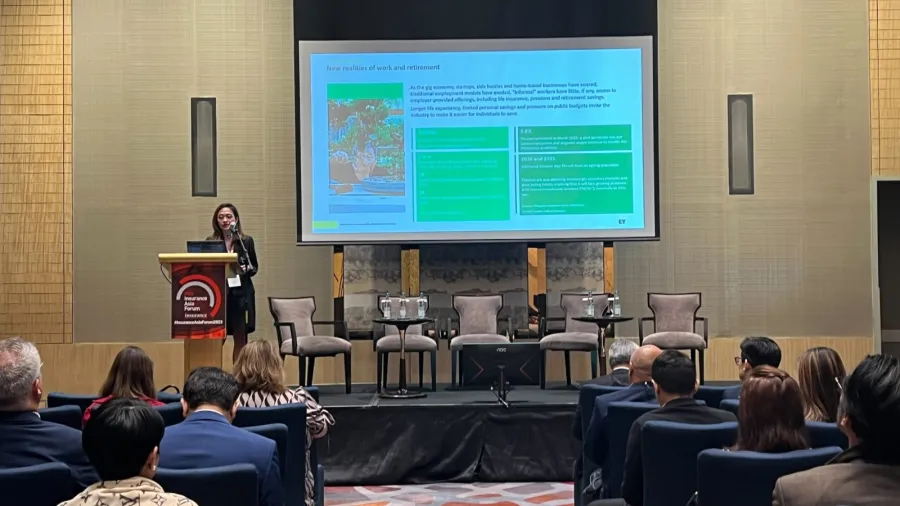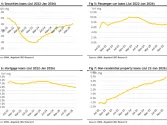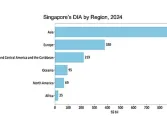
EY consulting partner tallies six emerging focus areas insurers must be on the lookout for
The expert said the life and health insurance and retirement industries will witness transformative changes in the coming years.
The insurance industry, once characterised by its traditional products and customer-centric approach, is undergoing a seismic shift whilst six key focus areas must be given close attention.
Speaking at the 2023 Insurance Asia forum yesterday in Manila is Charisse Rossielin Y Cruz, consulting partner at EY as she shares with fellow distinguished insurers in the Philippines upcoming trends, problem areas, and possible opportunities.
Cruz spelled out the six focus areas that the industry must touch upon: product, service, experience innovation; distribution model agility; talent flexibility; impactful marketing and enhanced service; upgraded streamlined it architecture operational excellence across the enterprise; and m&a and capital management strategies.
Forces shaping the industry
In today's world, insurance is no longer seen as a standalone product, this was emphasised greatly by Cruz. They seek holistic solutions that encompass protection, savings, and investments, tailored to their evolving life stages.
“But, beyond retirement savings and health insurance coverage gaps, many consumers lack financial knowledge and confidence.,” Cruz said.
In the Philippines, 83% of Filipinos are concerned the most about losing a loved one earlier than expected. This was followed by their financial well-being (80%), hospitalisation expenses (79%), and loss of stable income (78%).
The rise of the gig economy, startups, side hustles, and remote work has disrupted traditional employment models. Informal workers often lack access to employer-provided benefits like life insurance and retirement plans.
Advancements in AI, machine learning, and digital platforms have enabled insurers to design smarter products, enhance customer experiences, and explore innovative distribution models.
Regulation
“Regulatory scrutiny is increasing in most major markets, which can be a barrier to growth. But the many requirements that align to market and customer needs can prompt innovation,” Cruz said.
Insurers in the Philippines must comply with stringent capital ratio requirements and financial solvency legislation. This ensures the stability and financial health of insurance companies but can also be a restraining factor due to the associated compliance costs.
The insurance market in the Philippines is moderately concentrated, with the top four players accounting for approximately 49.1% of the market share. This concentration poses a significant barrier to new entrants trying to establish a foothold in the industry.
Obtaining regulatory approvals for insurance products can be a time-consuming process in the Philippines as well. This can slow down product innovation and market entry for insurers.
The sector is also expected to align with the trends observed in the banking sector. This includes developments in sustainability, open finance, Insurtech (insurance technology), and ecosystem initiatives. Regulatory changes in line with these trends are anticipated.
Economic fluctuations and high inflation can impact insurers with higher claims costs, but higher interest rates may provide opportunities for earnings growth with prudent risk management.
Articulating a clear purpose that aligns with environmental, social, and governance (ESG) objectives can enhance brand awareness and appeal to customers who seek to align their values with their financial decisions.
Navigating the new normal
So, what do these forces mean for insurers, and how can they navigate this transformative landscape?
Insurers must move beyond selling standalone policies and focus on holistic solutions that combine protection, savings, and investments. These solutions should be portable, flexible, and adaptable to cater to customers' evolving needs.
Embrace innovative distribution models and leverage technology to enhance customer experiences. Develop purpose-led value propositions that address key gaps in retirement savings and protection in areas like health, climate, and cybersecurity.
Philippine consumers are more likely to purchase health and life insurance online (63% and 61%, respectively). Likewise, 61% are keen on speaking with advisors/agents digitally. However, only half of the surveyed population indicated they are willing to share data from wearables (e.g. smart watches) in exchange for customised insurance premiums.
Invest in AI, machine learning, and digital platforms to stay competitive. Embrace ecosystem connectivity, marketplaces, subscription-based products, and holistic insurance for living to provide customers with more options than ever before.
The Insurance Commission in the Philippines is generally supportive of digitalisation efforts within the insurance industry. This support can be a contributing factor in facilitating technological advancements and digital transformation.
While regulatory scrutiny is increasing, a focus on good outcomes can reduce complexity and the risk of non-compliance. Use regulatory requirements as a catalyst for innovation.
Develop strategies for managing higher claims costs and reduced demand during recessionary environments. Consider prudent hedging and refining asset and liability management (ALM) policies to harness potential earnings from higher interest rates.
The road to 2030
A projected 9.3% increase in annual disposable household income in 2022 is expected to support growth in the life insurance market, Cruz noted in her session.
Despite macroeconomic instability, rising household income can drive demand for life insurance products.
The implementation of higher interest rates as part of a tighter monetary policy may have implications for the insurance industry. It could potentially lead to enhanced returns on investment, thereby benefiting life insurance products that are often linked to investment components.
If insured firms lack effective emergency protocols and resilience planning, insurance claims related to unforeseen events or disasters may increase. A lack of transparency within insured firms can have repercussions, affecting shareholders and potentially leading to claims.
Instances of corporate mismanagement within insured entities can result in claims, as these issues may impact the financial stability of the insured companies.
Moving along to 2030, the life and health insurance and retirement industries will witness transformative changes across every facet of their business, Cruz stated.
From strategy and leadership to data and technology, insurers must be prepared to transform nearly everything they do. The focus will shift from selling products that customers buy and forget about for decades to providing flexible, hybrid solutions that adapt to customers' changing needs throughout their lives.



















 Advertise
Advertise









